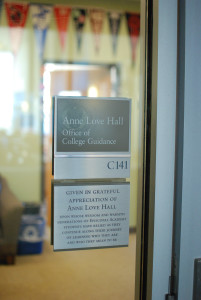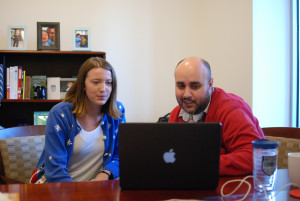Pia Singh ’19: Although many students think mind-numbing academic lessons won’t be so applicable to the real world as more practical classes—e.g., Financial Literacy and Home Economics, it is important to remember that EA is a college preparatory school. EA provides its students the logical and critical thinking skills necessary for a career; what is more, EA graduates have every ability to develop the practical skills they may come to need.

Photo Courtesy of Maggie Mengel ’17
Episcopal focuses on building a student’s character via the Stripes. Although FCS (Family and Consumer Sciences) and other vocational classes are not offered at EA, some students feel as if a class about finances or home skills would help them navigate the real world.
When asked about how well EA prepares it’s students for “real life,” Cynthia Crum, Director of College Guidance, responded, “I think the beauty our kids walk away with is the shared set of values…but I think there’s an essential question, what is preparing people for life? And I think the goal for me, and this goes for anything you do, is that if you can read critically, think deeply and independently, and communicate effectively, you can do anything. So we’re giving you those foundations.”
Asked if she felt prepared for the real world, Cathy Wang ‘17 stated, “I think I’m prepared in the sense that I’ve come to better understand who I am as a student, and I understand my drawbacks and some of my strong points as a student as well as how I can improve myself even going forward into college as of right now. I do need to know things about balancing my checkbook and courses like Financial Literacy at EA are not that appealing. I would say you should make it a required course but at the same time I wouldn’t choose it because it’s too dry for me. I want an applicable form of that class that teaches rising adults about future financial decisions, terms, and techniques that would be helpful moving forward.”
Similarly, Patrick Zhang ‘18 noted, “I think that it is important to keep on having discussions as a school about real life issues, whether that be classes discussing financial decision making ranging to open discussions regarding teenage mental health and global humanitarian issues.”

Photo Courtesy of Maggie Mengel ’17
Public schools tend to offer a more lenient schedule and a wider variety of classes. Cynthia Crum explained, “There are shared goals and expectations for our students. And again, we’ve got a wide array of families but I think everyone’s working in the same direction.” Public schools don’t always have strong values that they instill in everyone. This is a drawback compared to schools like EA which, beginning in Lower School, encourage core values that prepare students for anything they wish to pursue in the future.
TJ Locke, Head of School, stated “I don’t know that vocational classes prepare you for real life. Our mission is to be focused more on critical thinking, effective communication, analytical skills, those kinds of things. I think those will prepare you for whatever you want to do. I think we prepare kids for life in the types of skills they’ll need moving forward. We don’t really try to be a vocational school.”
Although academically-oriented schools like EA do not provide students with vocational skills, they afford students the intellectual means to pursue any career, no matter which practical skills it may require. School should be a comfortable yet challenging place where meaningful questions are asked, where answers promote further curiosity, where passions are discovered and dreams are encouraged, a nurturing environment that raises students to make an impact on the community. EA has established itself as a strong school academically, but above all EA is a community that builds character and gives students the wherewithal to succeed in the real world.